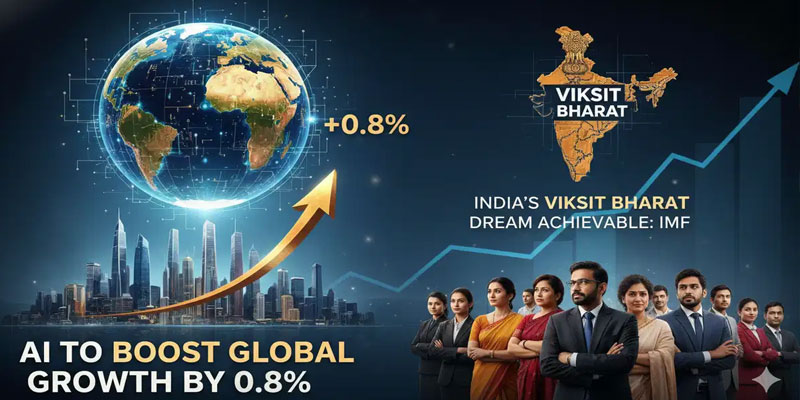 Women are able to excel for all reasons – they are considered to be naturally having the soft skill set and this is why they are doingphenomenally well in all the sectors. “Besides they have better embracing skills than their male counterparts and are very sensitive and are likely to deal with different situations differently. So if I have to give a No. 9 to man, I will give a 10/10 to woman in this matter. They won’t keep a one formula approach and so you will find many women fairly doing very good in some of the important executive positions,” opines Deepa Menon, Sr. VP – Corporate Communications & CSR, PVR Ltd.
Men and women are equal but different. They both have their own ways of communicating and decision making, each different from the other. This is what makes diversity at organisations so essential. “It just brings together different ways of looking at the same situation, and indeed different ways of communicating it. There is no better or worse way. I would only say that it is critical for CSR operations to have an extremely broad base of diverse inputs because the audience of communities CSR deals with is so diverse,” says Miniya Chatterji, Chief Sustainability Officer, Jindal Steel & Power Limited.
Miniya further elaborates that many of the key stakeholders within local communities are in fact women. “In the villages where I work, there are many women leaders as sarpanch, school principals, etc. and they do feel more comfortable speaking to women CSR professionals. It also opens up a larger spectre of issues to discuss between them. So it is definitely a good idea to include and indeed promote women on to significant roles in CSR teams,” she says.
“Women leaders and professionals are viewed as influencers, especially when they advocate on issues like inclusion and opportunities of work. The representation of women leaders in the community, business and civil society effectively showcases the commitments and egalitarian participatory process of the entire system,” Meenakshi states. “We have effectively utilised the Women Empowerment Principles (WEPs) in our organisation. We have ensured that women are effective leaders in carrying forward the CSR programmes,” she adds.
“Women speak their mind, which is the most important endowment for a good communicator. They are usually just and bold with their decisions, again a very critical attribute for a CSR leader,” says Archana.
Women have always created a positive impact, not only on business, but also on the sustainable development of society and the economy. Taking note of this are organizations, business leaders and investors who too have realized that the importance of CSR cannot be underscored enough. “The contribution and leadership skills of women have increasingly been recognized by organizations such as the UN and various governments. Stakeholders have a new benchmark too: it is imperative to have a gender-inclusive leadership, both in the boardroom and at the executive table, for long-term benefits and healthy growth of a company,”
Smita says.
Women are able to excel for all reasons – they are considered to be naturally having the soft skill set and this is why they are doingphenomenally well in all the sectors. “Besides they have better embracing skills than their male counterparts and are very sensitive and are likely to deal with different situations differently. So if I have to give a No. 9 to man, I will give a 10/10 to woman in this matter. They won’t keep a one formula approach and so you will find many women fairly doing very good in some of the important executive positions,” opines Deepa Menon, Sr. VP – Corporate Communications & CSR, PVR Ltd.
Men and women are equal but different. They both have their own ways of communicating and decision making, each different from the other. This is what makes diversity at organisations so essential. “It just brings together different ways of looking at the same situation, and indeed different ways of communicating it. There is no better or worse way. I would only say that it is critical for CSR operations to have an extremely broad base of diverse inputs because the audience of communities CSR deals with is so diverse,” says Miniya Chatterji, Chief Sustainability Officer, Jindal Steel & Power Limited.
Miniya further elaborates that many of the key stakeholders within local communities are in fact women. “In the villages where I work, there are many women leaders as sarpanch, school principals, etc. and they do feel more comfortable speaking to women CSR professionals. It also opens up a larger spectre of issues to discuss between them. So it is definitely a good idea to include and indeed promote women on to significant roles in CSR teams,” she says.
“Women leaders and professionals are viewed as influencers, especially when they advocate on issues like inclusion and opportunities of work. The representation of women leaders in the community, business and civil society effectively showcases the commitments and egalitarian participatory process of the entire system,” Meenakshi states. “We have effectively utilised the Women Empowerment Principles (WEPs) in our organisation. We have ensured that women are effective leaders in carrying forward the CSR programmes,” she adds.
“Women speak their mind, which is the most important endowment for a good communicator. They are usually just and bold with their decisions, again a very critical attribute for a CSR leader,” says Archana.
Women have always created a positive impact, not only on business, but also on the sustainable development of society and the economy. Taking note of this are organizations, business leaders and investors who too have realized that the importance of CSR cannot be underscored enough. “The contribution and leadership skills of women have increasingly been recognized by organizations such as the UN and various governments. Stakeholders have a new benchmark too: it is imperative to have a gender-inclusive leadership, both in the boardroom and at the executive table, for long-term benefits and healthy growth of a company,”
Smita says.
It has been widely acknowledged that gender inclusive leadership is associated with increased nature of corporate social responsibility. Despite a gender and age bias to success, the shift to stop gendering leadership in organizations has been observed, as is apparent from the appointments made at different executive positions. “Companies have realized that having women as board directors and in executive teams means well for the business. Within HGS, we now have three women leaders in the company’s global management team, and they are creating significant change every day,” adds Smita.
A significant policy change emerged with the new Companies Act 2013, wherein under the SEBI guidelines, it has been mandatory for all listed companies to have at least one woman on their boards (as an executive or a non-executive director). “Although we have policies in place, but the implementation needs to be seen in real terms and not just a mere tick mark activity. There are instances, in CSR and other spheres, where women are appointed as a mere fulfilment of compliance requirement and have no role, exposure or engagement in the decision making process. However, the civil society has been more active in appointing women leaders in their entire value chain. As a women leader, I have been carrying forward the organisation’s vision through a dynamic set of fellow young women leaders. It is my firm belief that we need to implement gender inclusive policies to ensure transformative decisions at both macro and micro level that promote diversity and equality,” cautions Meenakshi.
“Diverse perspectives in the Board Room make for better decisions,” says Miniya. Stakeholders understand that we need men and women, young and old, MBAs and PhDs, locals and outsiders, appropriately on the decision making table.”
A meaningful CSR practice...
A meaningful CSR can be created when the welfare of the society has to be placed as priority. And then the idea has to be kept pushing forward. Pushing the boundaries continually helps in trying to move companies and society along. “I see women as dynamic leaders of change. They are getting involved to claim their rights, strengthen their communities and protect their planet. Women leaders have successfully highlighted gender issues in CSR strategies and the need to bring drastic changes in communities,” observes Smita.
Explaining of how meaningful CSR can become, Miniya explains it by taking the broader Indian society into perspective. “India has the largest number of malnutritioned women in the world. Further, literacy rates for girls are far inferior to the boys in this country. Almost every parameter of the human development index in India is skewed unfavourably towards women. In such a situation, women can understand the challenges and be part of the solution. I feel role models work tremendously well especially in India. And so every success story of a girl will be an inspiration for the rest. The private sector is an excellent platform to catalyse social change, and women in the CSR departments of these companies must drive their organisations towards doing business responsibly especially in a way that improves the condition of girls in our country. There can be no other agenda that is more important. We are not growing as a Nation if we leave our girls behind. And women on CSR roles can take the lead on making this change happen.”
It is important to enhance the role of women in the CSR projects and activities. From community leaders to business decision makers the focus should be on creating a strong set of women leaders in all aspects of economy and society. “This can be done through conducting meaningful CSR interactions, and having dialogues directly with women from marginalised community. This will help bring pressing issues like inequality and discrimination at the forefront. It is vital to utilise CSR as an effective tool to alleviate the challenges, issues faced by women at large scale,” says Meenakshi.
“Whilst many times business would like to see it a tool to appease its stakeholders (especially Govt.), a CSR leader has to ensure that money is well spent and for the right causes that finally benefits the community,” tells Archana.
What lies in the future...?
Any optimist would feel that the future of women is bright not only in CSR but in almost every field in India. However what Miniya points out is that there is hardly any good data on the numbers or working conditions of girls in corporates in India, let alone specifically in CSR departments. “That itself is a massive indicator of lack of attention to diversity,” she says. “A few years ago CII indicated that women made up 16% of junior managers, about 4% of middle managers and just 1% of senior leadership in India. So even though it is not impossible to find girls working in CSR departments of various organisations, it is still very rare to find girls (especially if they are young) at leadership positions. Further, it is not just the headcount – but how certain are we that the girls working in CSR truly aspire to do so? Are their wages the same as their men colleagues?”
As a country, India fares poorly on gender index (130 out of 155 countries) and the participation of women in workforce is only 25%. “As women need to intensify their role and participation, it needs to be viewed as an opportunity for business and other stakeholders to address the above challenges. Most importantly, to remove any form of gender based inequalities it is vital to leverage the participation of women in the development process.
The principle of fairness will also be ensured when both men and women are placed on similar platforms so that the influence of gender inclusivity is addressed universally,”explains Meenakshi.
The latest trend also states that a lot of non-profit women are moving to the corporate sector to join CSR and a lot of skilled non profit women are now able to find a job in the CSR world. “We are an exceptional country by itself, having created a CSR law. We have a full fledged Ministry of Corporate Affairs which is driving the CSR agenda. This is exceptionally amazing for women professionals who understand this non-profit sector well. So it’s a great opening which earlier it was not so. Most of this non-profit sector specifically drives only fund raising, or takes the call for action after looking at the requirements of different communities and works very closely with the government on important projects. They are already trained for the sector but now they are trying to understand the corporate. They need to understand the boardroom mechanism so that their decision making is taken into priority,” admits Deepa.
There are also a couple of structured training programs that the Ministry of Corporate Affairs has started, which help them to deal with the current company requirements and work and also have a fairer knowledge of the nonprofit sector.
While talking about meeting the desirable standards, India is still way behind but we can always work towards it. The private sector not only helps in improving the economy but also levelling the playing field for various strata of the society. Women working in these organisations must speak up for themselves and provide their diverse points of view. They need to drive their organisations towards a sustainable plan of solid social commitment. CSR will of course be part of that plan.






















